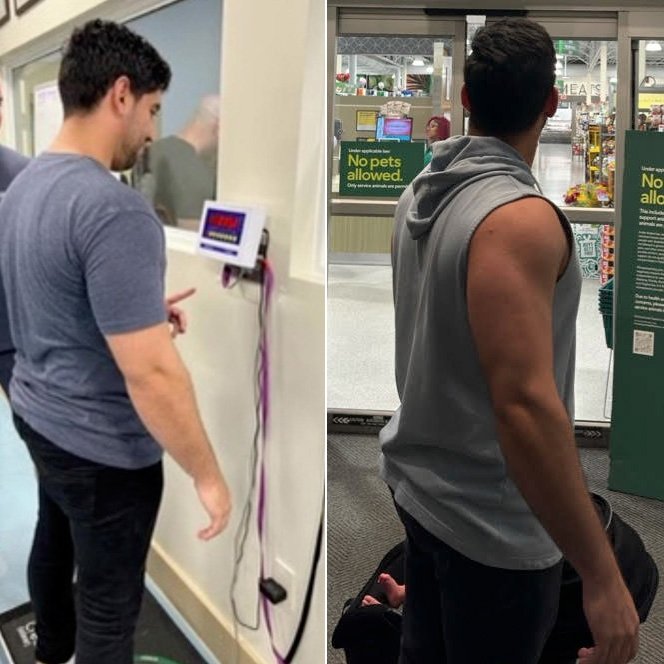Thyroid Hormone Replacement Therapy
All of Renew Vitality’s treatment programs are custom tailored to the individual by an experienced medical expert in our nationwide network.
Table of Contents
Hypothyroidism, also known as underactive thyroid, is a common hormonal condition that affects nearly 13 million Americans in the United States. This type of hormone imbalance occurs when the thyroid cannot produce enough hormones to regulate necessary biological processes in the body, such as metabolism and digestive function. There are several reasons for hypothyroidism, which are usually categorized as primary and secondary causes. Primary causes usually involve direct damage to the thyroid, such as radiation treatments, thyroiditis, Iodine deficiencies, and autoimmune disorders such as Hashimoto’s disease. In some cases, thyroid hormone deficiency can even be a hereditary condition passed down through genetics.
On the other hand, secondary causes usually refer to damage that can cause the pituitary gland to fail and affect its ability to send thyroid-stimulating hormone (TSH), which signals the thyroid to release thyroid hormones. When these changes cause the pituitary gland to produce hormones above normal TSH levels, it means that the thyroid gland is no longer making enough thyroid hormone to utilize the TSH during production.
Although several natural remedies can help your body produce thyroid hormone, it is best to seek medical care from a licensed hormone doctor. The most effective medical treatment for thyroid hormone deficiency requires providing the body with the proper amount of thyroid hormones needed to maintain your body’s metabolic rate, which is why many physicians recommend thyroid hormone replacement therapy.
Thyroid hormone therapy is a non-invasive procedure that uses synthetically created thyroid hormones to elevate abnormally low levels of natural thyroid hormones in the body. With this method of treatment, physicians typically use an oral form of thyroid hormone to treat an underactive thyroid that has significantly decreased or ceased thyroid hormone production.
How Thyroid Hormone Therapy Works
When using thyroid hormone therapy for thyroid complications, physicians will typically prescribe thyroid hormone replacement tablets to work in place of the thyroid hormone that the body can no longer produce. This form of thyroid medication is either synthetically created in a lab or derived from animal glands to be the biological equivalent of human thyroid hormone. By using thyroid medicine to carry out the role of diminished thyroid hormones, physicians can help men maintain the biological functions normally regulated by the thyroid gland and improve the symptoms of hormone deficiency.
However, every patient’s biology is different, so it is very important that you’re taking the right amount of thyroid hormone for the treatment to be effective, as certain issues can occur with taking too much or too little thyroid hormone. Low doses of thyroid hormone can cause patients to experience fatigue and other symptoms associated with hypothyroidism, whereas high doses can cause heart palpitations, insomnia, and calcium loss, which can weaken bone density and lead to osteoporosis. Finding the perfect dose is important for patients with pre-existing conditions such as heart disease, as even a slightly high dosage can increase the risk for heart attacks.
As you progress through therapy, your physician will perform regular blood tests to monitor hormone levels and adjust the dosage if needed. Typically, after the first month of treatment, your physician will measure your hormone levels to determine if the dosage is sufficient enough to produce the desired results.
What Does Thyroid Hormone Do in Males?
The pituitary gland primarily regulates the amount of thyroid hormone traveling through the body. When the body is producing high or low amounts of thyroid hormone, the pituitary gland releases TSH, which sends messages to the thyroid and instructs it to correct the imbalance. Physicians will typically use these TSH levels to help them determine the state of your thyroid function. If your TSH levels are high, the thyroid is not producing enough hormone for your body to function, and if you have low TSH levels, your thyroid is releasing too much hormone.
Typically, the thyroid gland produces two hormones, triiodothyronine (T4) and thyroxine (T3), to help maintain men’s metabolism, weight, and mood. The body will typically convert T4 into T3, which will send messages to the cells to determine how much energy the body will use. However, when the thyroid is unable to produce T3 and T4, it becomes more difficult to provide sufficient thyroid hormones to control this process, leading to many symptoms that can make life a lot more difficult for men, such as:
- Hair loss
- Muscle weakness
- Low testosterone
- Fatigue
- Constipation
- Dry skin
- Increased sensitivity to cold temperatures
If left untreated, hypothyroidism can lead to serious complications such as infertility and heart disease. However, once patients are able to find an effective thyroid hormone replacement therapy plan that works in particular in conjunction with their bodies, many of these symptoms begin to improve, allowing them to restore their biological functions and return to a better state of health.
Who Needs Thyroid Hormone Replacement Therapy?
Thyroid hormone therapy is usually prescribed to men with hypothyroidism, a condition in which the thyroid is no longer producing enough thyroid hormone naturally. However, thyroid hormone therapy can be used to serve other medical purposes, such as:
- Regulating the growth of an enlarged thyroid gland
- Treatment after removing the thyroid due to a benign or malignant disease
- Post hyperthyroidism treatment after radioactive iodine ablation
Types of Thyroid Hormone Replacement Treatments
There are two types of thyroid replacement treatments that physicians commonly prescribe to help treat your thyroid condition: levothyroxine and desiccated thyroid extract.
Levothyroxine
Levothyroxine is a synthetically produced thyroid medication that is used to help elevate thyroid hormone levels. It contains T4 (thyroxine) which is usually converted into T3 (triiodothyronine)–the active form of the thyroid hormone used in the cells and tissues of the body.
Desiccated Thyroid Extract
Desiccated thyroid extract treatment is a type of bioidentical hormone replacement therapy that utilizes dried thyroid gland from pigs to mimic human thyroid function. Created to provide patients with more natural thyroid medication, DTE contains both T4 and T3, which is why it’s usually considered the closest equivalent to the human thyroid and the best medication to use for thyroid hormone replacement therapy. There are several manufacturers that produce and sell DTE, including:
- Armour Thyroid
- NP Thyroid
- Nature Thyroid
- Natural Thyroid
DTE is commonly prescribed for patients whose bodies are unable to convert T4 into T3. Depending on how your body processes thyroxine (T4), your physician may prescribe DTE instead of levothyroxine to help provide the T3 needed to actually produce results. Since DTE doesn’t require conversion to produce T3, many patients prefer it over levothyroxine as a hypothyroidism treatment.
Possible Side Effects and Risks
For the most part, thyroid replacement hormones rarely cause side effects. However, patients who participate in levothyroxine monotherapy and are unable to convert T4 into T3 may experience frequent hypothyroidism symptoms such as:
- Decreased focus and concentration
- Fatigue
- Depression
- Low energy levels
- Headaches
- Excessive sweating
Taking high doses of thyroid hormone as part of a long-term thyroid hormone replacement therapy can also increase the risk for several side effects, which include:
- Irregular heartbeat (arrhythmia)
- Weak bone density (osteoporosis)
- Weight loss
- Nervousness
- Chest pain
- Excessive sweating
Make sure to consult with your doctor immediately if you experience certain side effects while taking thyroid hormones. Your physician will measure your TSH levels so they can find an appropriate dosage to help offset the side effects.
Our Advantages

How Is the Dose of Thyroid Hormone Chosen?
Your physician will request a blood test to measure your levels of thyroid hormone and thyroid stimulating hormone to help them determine a proper thyroid hormone dosage for treatment. The initial dose for thyroid hormone therapy is based on your weight, age, and other medical conditions. During treatment, your physician will periodically perform physical evaluations, check your TSH levels, and adjust the dosage to make sure that your thyroid levels remain normal.
At Renew Vitality, we specialize in thyroid replacement therapy for men struggling with hypothyroidism. Our experienced team of medical professionals utilizes safe and effective thyroid hormone medications to help you maintain your metabolism and digestive function. Contact us at 1-866-863-5538 and schedule an appointment at any of our hormone replacement clinics in the United States to learn more about our treatment options for your thyroid hormone deficiency.
FAQ
What is the Role of the Thyroid?
The thyroid gland releases a steady amount of thyroid hormones into the bloodstream to regulate various biological functions such as metabolism, growth, and development. For example, if the body needs more energy or gets cold due to dropping temperatures, the thyroid gland produces more hormones to increase energy levels or raise your body temperature so you can feel warmer.
What are T4, TSH, and T3?
The two main hormones produced by the thyroid gland, thyroxine (T4) and triiodothyronine (T3). When thyroxine (T4) is released by the thyroid gland, it is typically converted into triiodothyronine (T3), which is responsible for sending messages to the cells that control metabolic processes in the human body.
How do I take Thyroid hormone?
Thyroid hormone is usually taken at least twice daily; once in the morning and another before you go to bed. In the morning, it’s best to take your thyroid medicine at least 1 hour before you eat breakfast and any prescription calcium or iron medicines you need to take. Your second dose in the evening should be taken at bedtime or at least 3 hours after you eat dinner and take your prescribed iron and calcium medicines.
What if I miss a dose?
According to the American Thyroid Association, it’s ok to miss your regular dose of thyroid hormone as long as you take the missed dose as soon as you remember. You can also make up for the missed dose by taking a double dose the next day. However, if you miss more than two doses, you should consult with your physician so they can safely guide you back to a regular dosing schedule.
Our HRT Programs are designed to help renew your health and wellness. Contact us today to unlock your full potential.

Testimonials
FEELING RUN DOWN?
TAKE THE LOW-T QUIZ TODAY
Our men’s clinic can restore your physiology, change your body composition and optimize your health to slow down aging and prevent health complications caused by low testosterone.
Take back your life and become a better you today!











